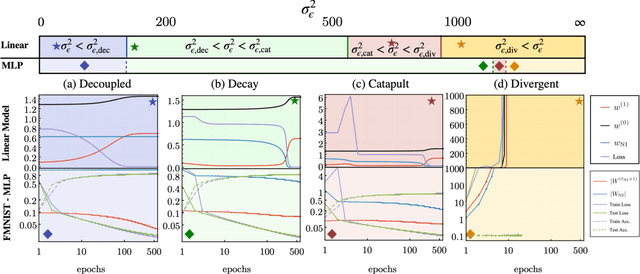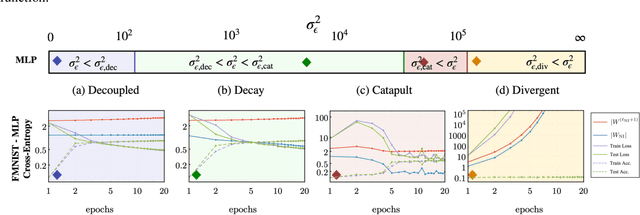Tomer Volansky
Noise Injection Node Regularization for Robust Learning
Oct 27, 2022Abstract:We introduce Noise Injection Node Regularization (NINR), a method of injecting structured noise into Deep Neural Networks (DNN) during the training stage, resulting in an emergent regularizing effect. We present theoretical and empirical evidence for substantial improvement in robustness against various test data perturbations for feed-forward DNNs when trained under NINR. The novelty in our approach comes from the interplay of adaptive noise injection and initialization conditions such that noise is the dominant driver of dynamics at the start of training. As it simply requires the addition of external nodes without altering the existing network structure or optimization algorithms, this method can be easily incorporated into many standard problem specifications. We find improved stability against a number of data perturbations, including domain shifts, with the most dramatic improvement obtained for unstructured noise, where our technique outperforms other existing methods such as Dropout or $L_2$ regularization, in some cases. We further show that desirable generalization properties on clean data are generally maintained.
Noise Injection as a Probe of Deep Learning Dynamics
Oct 24, 2022



Abstract:We propose a new method to probe the learning mechanism of Deep Neural Networks (DNN) by perturbing the system using Noise Injection Nodes (NINs). These nodes inject uncorrelated noise via additional optimizable weights to existing feed-forward network architectures, without changing the optimization algorithm. We find that the system displays distinct phases during training, dictated by the scale of injected noise. We first derive expressions for the dynamics of the network and utilize a simple linear model as a test case. We find that in some cases, the evolution of the noise nodes is similar to that of the unperturbed loss, thus indicating the possibility of using NINs to learn more about the full system in the future.
 Add to Chrome
Add to Chrome Add to Firefox
Add to Firefox Add to Edge
Add to Edge